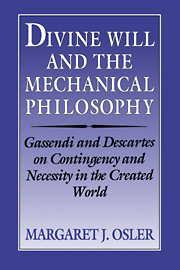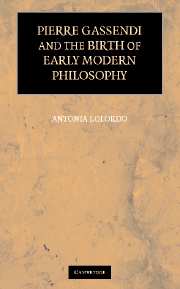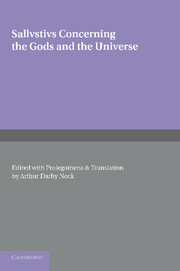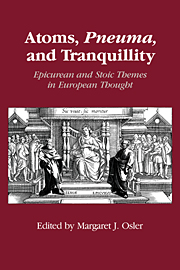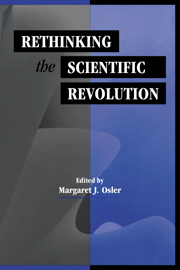Divine Will and the Mechanical Philosophy
This book is about the influence of varying theological conceptions of contingency and necessity on two versions of the mechanical philosophy in the seventeenth century. Pierre Gassendi (1592–1655) and René Descartes (1596–1650) both believed that all natural phenomena could be explained in terms of matter and motion alone. They disagreed about the details of their mechanical accounts of the world, in particular about their theories of matter and their approaches to scientific method. This book traces their differences back to theological presuppositions they inherited from the Middle Ages. Theological ideas were transformed into philosophical and scientific ideas which led to the emergence of different styles of science in the second half of the seventeenth century.
Product details
January 2005Paperback
9780521524926
300 pages
229 × 152 × 17 mm
0.44kg
Available
Table of Contents
- Part I. Theology and the Philosophy of Nature:
- 1. Divine power and divine will in the Middle Ages: historical and conceptual background
- 2. Baptizing epicurean philosophy: Gassendi on divine will and the philosophy of nature
- 3. Providence and human freedom in Christian epicureanism: Gassendi on fate, fortune and divination
- 4. Theology, metaphysics, and epistemology: Gassendi's 'Science of Appearances'
- 5. Eternal truths and the laws of nature
- Part II. The Theological Foundations of Descartes' Philosophy of Nature:
- 6. Gassendi and Descartes in conflict
- 7. Introduction: theories of matter and their epistemological connections
- 8. Gassendi's atomism, an 'empirical' theory of matter
- 9. Mathematizing nature: Descartes' geometrical theory of matter
- 10. Conclusion: theology transformed and the emergence of styles of science.

